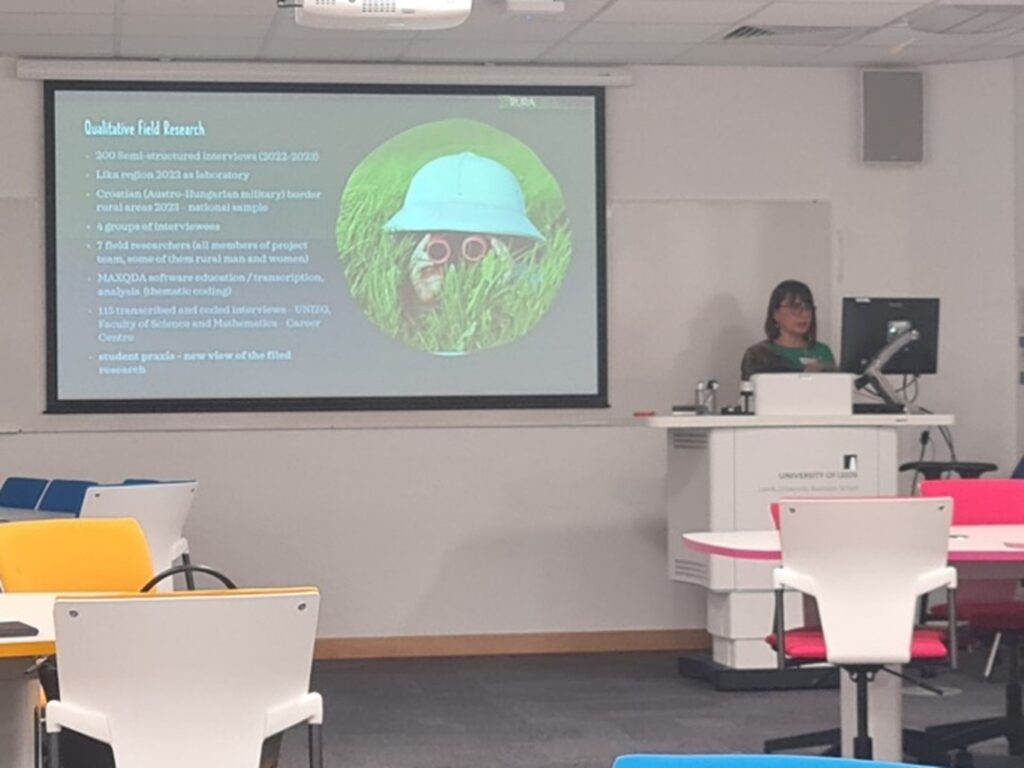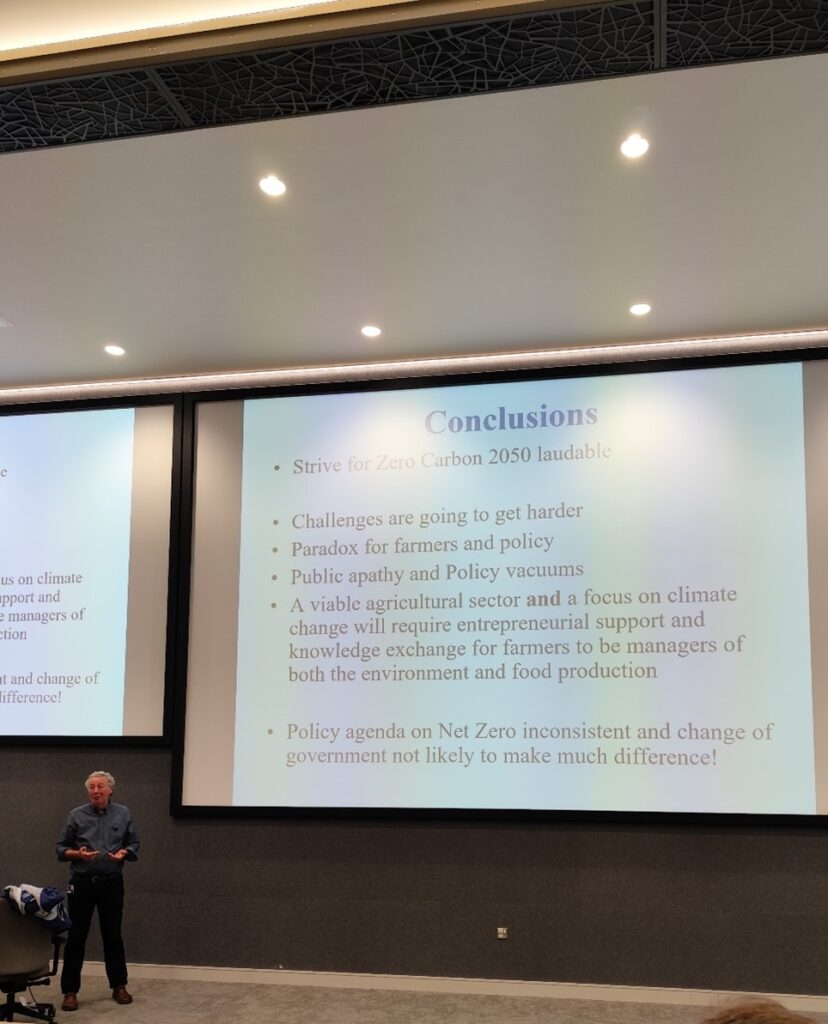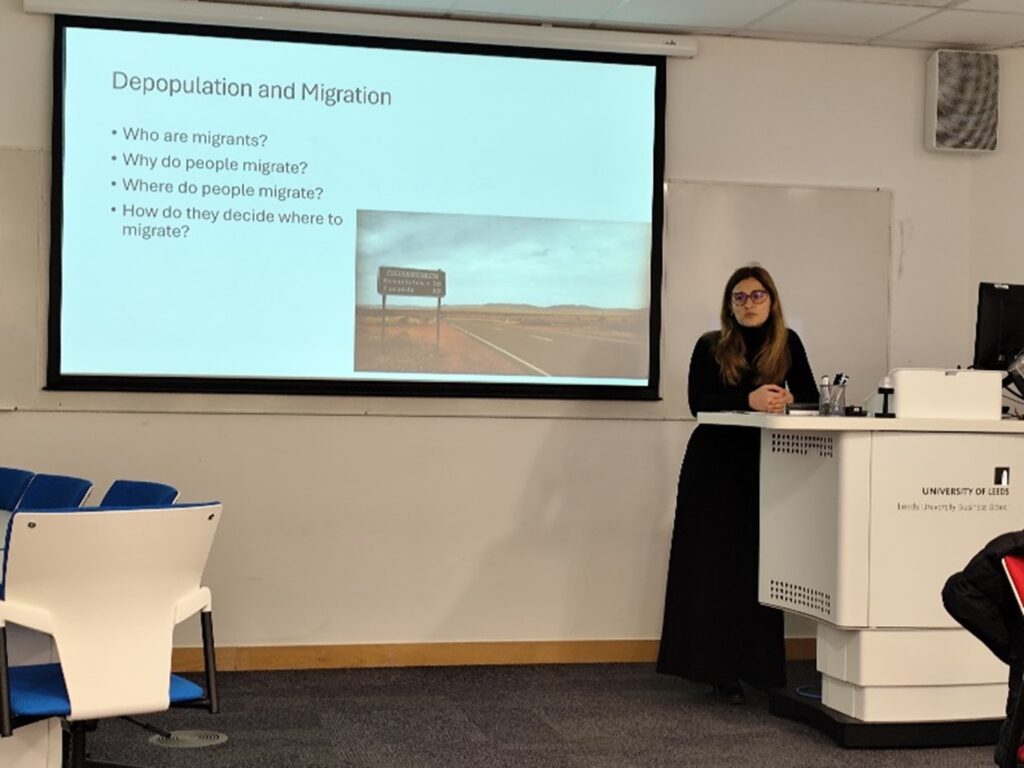By Anita Busljeta Tonkovic (Ivo Pilar Institute of Social Sciences, Croatia)
From June 5 to 7, MARGISTAR’s Anita Busljeta Tonkovic for the fourth time visited the Rural Entrepreneurship Conference at the University of Leeds, England. Although the conference location changes annually, it is host to a regular group of academics who Anita has been meeting and maintaining international scientific collaborations with for years. Read about Anita’s experiences and how these have changed since her first visit as a postdoctoral researcher in 2016.
Empowering Rural Futures: Unleashing Entrepreneurial Potential in a Net-Zero Era
The Rural Entrepreneurship Conference (REC) focuses on understanding the constraints and opportunities for rural entrepreneurs, as rural entrepreneurship is set to play a crucial role in meeting net zero goals and making progress towards the UN Sustainable Development Goals.
This is my fourth visit to the conference, which I regularly join to meet colleagues, collaborators on shared scientific papers, and consultants in the projects I lead. Over the past 20 years, the conference goal has remained to reflect on dynamic and highly unpredictable situations and explore their impact on farmers, rural businesses, community-led social enterprises, and wider rural communities. Within the context of the conference, “rural” refers to remote or peri-urban areas.

This year, REC revolved around the question of how rural businesses can thrive in often-constrained contexts while delivering strong economic, social, and environmental contributions. The conference was attended by participants from 20 countries and more than 50 papers were presented. It was a good opportunity to make contacts and establish potential for future collaboration.

Along these lines, I presented a collaboration with my co-authors, Ema Basic and Natasa Bokan, entitled “If I were to return, I would return as an entrepreneur”: The apolitical nature of rural youth in the Croatian region of Lika and the dream of entrepreneurship – myth or reality?”

The presentation focused on the apoliticisation of Croatian rural youth and its consequences for the future of rural areas. This is a well-known topic amongst conference participants outside of Croatia, as they are also confronted with similar situations in their rural regions. During the presentation, I pointed to the MARGISTAR Cost Action as an opportunity to work with international and multidisciplinary scientists to address marginalised mountain and rural areas and to bring about developmental change.


Following the meeting, my colleague Ana Vuin (Scotland Rural Collage, Edinburgh, Scotland) and I finalised the details for a co-authored paper. Additionally, I liaised with my colleague Gary Bosworth (Northumbria University, Newcastle, England) surrounding research being conducted in Northumbria. I am considering this location to look at a specific part of my research – the quality of life for primary and secondary school teachers in sparsely populated rural areas.
Deep Dives into Presentations at the Rural Entrepreneurship Conference
In addition to my presentation, I learned from Professor Gerard McElwee in his opening keynote on the topic of ‘Agricultural Policy in a Very Uncertain Future.’ Gerard pointed out a single basic question: how will farmers develop the skill of becoming environmental managers and food producers if they are left to act on their own? This was of particular interest to me because, through my research, I have come to understand that general creeping modernisation processes throughout the history of rural Croatia have shaped three types of Croatian peasants: (1) soldiers/warriors, (2) workers, and (3) managers. These roles developed without the previously acquired knowledge and skills of their urban contemporaries and thus shed light on how skills might be developed in rural areas.

As I research topics related to the two conference sessions “Challenges and Opportunities for Rural Development” and “Rural Policy, Support, and Investments,” these sessions were particularly interesting for me.
In these sessions, Author Gary Bosworth (Northumbria University, Newcastle, England) spoke on “A Spatial Analysis of the Conditions for Rural Entrepreneurship” and showed the model that he and his colleagues had created. Their motto was, “There is no bad cake recipe for rural development planning, you just need to be aware of what ingredients there are and make the most of them; then, when you see what is missing, you can work to get better ingredients.” Bosworth and his colleagues would like to test their model in other countries and are open to collaboration.
Author Lorna Pate (Scotland Rural Collage, Edinburgh, Scotland) highlighted the need to understand and/or plan childcare provision in rural Scotland. She addressed a specific issue relating to the sustainability of private and public/non-profit childcare provision, emphasising that childcare as a service is generally difficult to access in rural areas.
Author Ana Vuin (Scotland Rurak Collage, Edinburgh, Scotland) spoke about “Exploring the ‘Post-Actional’ Phase of the Migration Experience in a Rural Area: Factors Influencing Decisions to Stay or Leave.” She made interesting comments on the migration processes from urban to rural areas, highlighting the low barriers to entry and high barriers to exit rural spaces. These barriers mostly relate to the lower cost of living in rural areas as opposed to highly urbanised spaces. Ana also explained that people with higher standards of living were likely more able to afford to choose their place of belonging in rural areas.

Lastly, the mental health of rural populations was one of the most important and fundamental topics of the conference. Author Arthur Steiner (Caledonian University, Glasgow, Scotland) presented results of the thematic analysis of 3,000 internet posts made in the Rural Mental Health Forum. His research shows that the Forum seems to be important for the rural population, especially in remote areas. These populations find help in the basic information and advice posted on the forum by professionals, but also in exchange with their peers who share similar backgrounds. Forum members provide readers with concrete information on the further steps they can take in relieving their symptoms, such as listing recommended medication, doctors, and facilities.

Overall, REC presented an ideal opportunity to solidify my knowledge in a wide range of topics related to rural areas in Europe and beyond. Networking with scientists involved in research surrounding rural areas, exchanging research results and project ideas, and planning joint scientific papers or the possibility of publishing in special issues offered great value to both me and the MARGISTAR COST Action. I would like to thank the conference organizer, our dear colleague Dr Peter Gittins, for making the University of Leeds our home for these wonderful three days!

Heads up! A new book is on the horizon and can be viewed online in September 2024: Rethinking Rural Studies, by authors David L. Brown and Mark Schucksmith.
The header image shows Leeds Bridge over the River Aire (source: Anita Busljeta Tonkovic).


